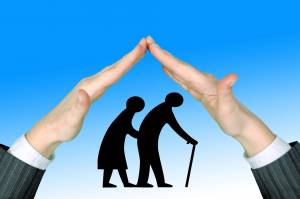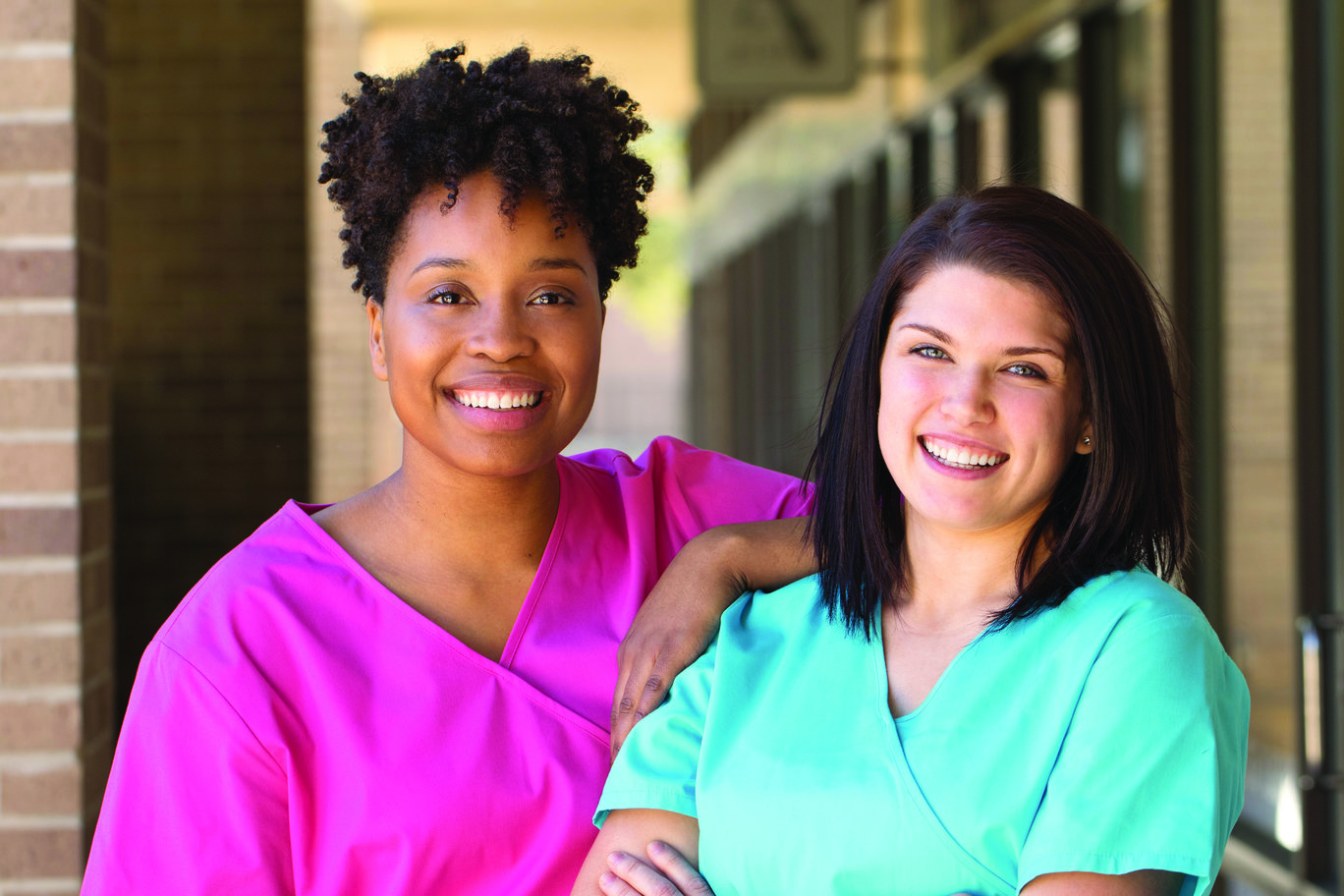Spending as many years as possible living independently in their own homes is the goal of nearly 90% of seniors according to a study by AARP. Their research also shows that 69% of seniors and 75% of their adult children have concerns about the parents’ ability to live independently in the future. “Aging in place”, which refers to living on your own as long as possible, may involve a patchwork of family assistance, community resources, and assistance from a health care agency, but it can be accomplished successfully.
Modifications
Modifications will have to be made to the home, but many of these are simple and/or inexpensive. Remove slick rugs that can lead to falls, declutter high traffic areas, and use brighter light bulbs so rooms aren’t as dim, at least to the parent. Move the bed up against the wall so it can’t slide around and be sure the mattress and box spring are the correct height combination to avoid having to climb into or crouch down to get into bed. Keep commonly used dishes and pans on lower shelves and keep items between shoulder and waist height to avoid frequent stooping/stretching.
If you have renovation experience, change doorknobs to handles that are easier for arthritic hands to grab and install grab bars in the bathroom. If you have enough of a budget, install an elevated toilet, raise electrical outlets and lower electrical switches. These changes will make it easier to stay in the home even longer.
Hello Alexa/Siri/Google, Can You Check On Mom?
 Technology is revolutionizing every industry, and elderly care is no different. We can use tech to easily check in with loved ones from anywhere in the world, monitor vital signs, lock the house, and more. It’s not quite Star Trek, but it’s still pretty amazing. Best of all, it’s inexpensive and easy to install.
Technology is revolutionizing every industry, and elderly care is no different. We can use tech to easily check in with loved ones from anywhere in the world, monitor vital signs, lock the house, and more. It’s not quite Star Trek, but it’s still pretty amazing. Best of all, it’s inexpensive and easy to install.
Voice activated home automation systems can control lights and thermostats, make phone calls, place online orders, give reminders, alarm a security system, and perform many other tasks. These systems can also cut power to outlets from anywhere in the world with a Wi-Fi connection, so there’s no need to worry about stoves, irons, or coffeemakers being left on and starting a fire. The skills vary according to the system, but systems are well under $100 and other items such as light sockets and thermostats can be added on as needed or as the budget allows. New skills are being added constantly, so check your system frequently.
Video calls allow families to check in with their loved ones any time they want and actually see how they are doing, instead of trying to guess by tone of voice. Tablets often come with programs that allow video chats, are low cost, and are usually easy enough for anyone to understand. Children who might not talk on the phone are usually chattier in front of a video camera. This encourages them to be more sociable and interact more, which makes them happier and healthier.
Mobile apps allow doctors to monitor patients’ vital signs in their own homes, including glucose, blood pressure, and skin temperature. Other devices measure vision, breathing, and sleep patterns. Apps for pharmacies can send reminders about medication refills or let you chat with a doctor or pharmacist.
Common Sense Changes
Making a few changes around the house will make things easier on everyone. Using common sense now will save time and trouble later, and will keep your loved one in the home longer. All it takes is one injury from a fall to derail a plan to live independently.
- Move the washer/dryer upstairs, or downsize it. Frequent trips up and down the stairs to do laundry increase the risk of falls. A stackable washer/dryer may be just the right size, and fits in a bathroom or kitchen. A full size set may not be necessary anymore.
- More items mean more maintenance, something your loved one may not be able to do without assistance.
- Hire someone to do yard work. Let them fuss over treasured flowers if they must, but heavy duty work like mowing, raking, tilling, weeding, and so on should be done by someone one else. It’s more physically taxing than many people realize.
Consider Home Care
Sometimes things change and independent living is no longer the best option for a person. It’s heartbreaking to realize, and a difficult decision to make. It’s important to regularly assess your loved one for changes in mental and physical condition. An older person who is physically impaired and left alone is in danger, so never feel guilty about making that decision.
The best way to assess your loved one’s condition is to determine their ability to do these activities:
- Go up and down stairs
- Get in and out of bathtubs/showers
- Get onto and up from chairs, beds, and toilets
- Reach up and bend down to retrieve items
- Drive or use public transportation
- Maintain the home
- Manage their own health
Some conditions put loved ones at a higher risk for a home accident. These include:
- Balance problems;
- Vision issues;
- Dementia and other cognitive problems;
- Chronic health conditions including Parkinson’s, stroke, or severe arthritis;
- History of falling and inability to get up again.
The skilled professionals at Assisting Hands Home Care provide the home health care you need so your loved one can age in place, according to everyone’s wishes. We’ll work with you to create the care plan that suits you perfectly; then we’ll find the right caregiver for the job.
Our Home Care Services include:

- Senior Personal Assistance
- Healthy Meals
- Errands & Transportation
- Light Housekeeping
- Companionship
- Care Management
Whether you need daily help with housekeeping or 24-hour care for someone with dementia or illness, Assisting Hands Home Care provides the services your loved one needs and the experience and trust you need. We’ll help your loved one stay at home as long as possible because we know it’s important for their comfort and well-being to live where they feel safe and secure.
Get a Free Consultation
Give us a call at (847) 796-6685 to schedule a free consultation for our professional home care services.
How to Divide Responsibilities for Senior Care
Caring for an aging loved one is a demanding yet rewarding task. Few caregivers juggle all care responsibilities single-handedly, making it advisable to enlist the support of family members and friends to make their role easier. Dividing care should be done with thought. What are the benefits of dividing care? Stress naturally accompanies caregiving, as
Chores That are Safe for Seniors to Help Keep Them Active
As people grow older, their physical and cognitive abilities begin to decline. They may no longer be able to safely complete certain activities to maintain the home, from clearing the gutter to cleaning the bathroom. However, seniors can safely perform the following chores to stay active. Household chores are a necessary and important part of
How do Seniors Plan for Old Age Without Family?
A spouse or children normally assume the role of caregiver when an elderly loved one needs help. But when seniors lack this essential social support, they must rely on other means to carry them through their golden years. Here are ways elder orphans can plan for their future. What is an elder orphan? An elder
